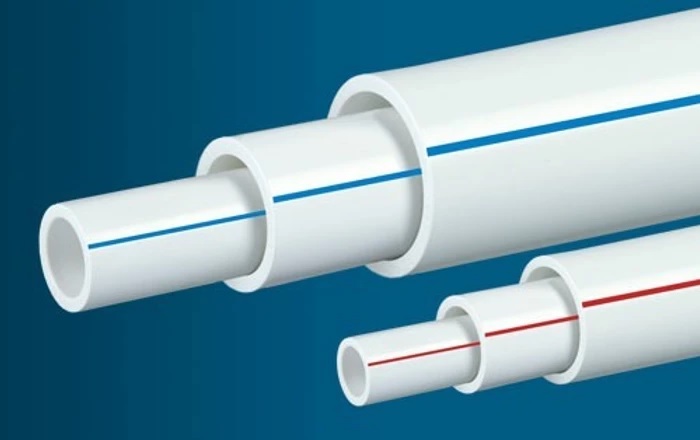Introduction:
The quality of the water we drink is critical to our general well-being. uPVC pipes and fittings have gained popularity in recent years as a dependable solution for water delivery systems. These innovative pipes, made of unplasticized polyvinyl chloride (uPVC), offer several advantages over traditional materials. In this article, we will explore the impact of uPVC pipes on water quality and health, highlighting their contributions to ensuring safe and clean drinking water.
1. uPVC Pipes: A Trustworthy Water Conveyance Solution:
uPVC pipes have emerged as a popular choice for water supply systems due to their exceptional properties. These pipes are corrosion-resistant, ensuring that the water remains free from any metallic contamination that can compromise its quality. The smooth inner surface of uPVC pipes minimizes the buildup of sediments and biofilms, reducing the risk of bacterial growth and maintaining water purity.
2. Non-Toxic Material: Preserving Water Quality:
One of the significant advantages of uPVC pipes is that they are made from non-toxic materials. uPVC is an unplasticized form of polyvinyl chloride, which does not contain harmful additives like phthalates or lead. This ensures that the pipes do not leach any harmful substances into the water, preserving its quality and preventing potential health risks associated with chemical contamination.
3. High Durability and Longevity:
uPVC pipes are known for their durability and longevity, which directly impact water quality. Unlike metal pipes, uPVC pipes do not corrode, rust, or degrade over time. This means that there is no risk of pipe deterioration or the release of particles that can affect the water quality. The long lifespan of uPVC pipes also minimizes the need for frequent replacements, ensuring a consistent supply of clean water over an extended period.
4. Resistance to Chemicals and Acids:
Another advantage of uPVC pipes is their resistance to chemicals and acids commonly found in water sources or used for water treatment. uPVC pipes are not susceptible to chemical degradation, ensuring that they maintain their structural integrity and do not release harmful substances into the water. This resistance enhances water quality and prevents any adverse health effects that may result from chemical contamination.
5. Easy Installation and Maintenance:
The ease of installation and maintenance of uPVC pipes contributes to their positive impact on water quality. The lightweight nature of these pipes makes them easy to handle and install, reducing the chances of physical damage during the installation process. Additionally, uPVC pipes require minimal maintenance due to their inherent resistance to scaling, fouling, and corrosion. This reduces the risk of water quality degradation caused by pipe-related issues.
6. Compatibility with Safe Drinking Water Standards:
uPVC pipes and fittings are manufactured to comply with stringent safety standards for drinking water. They are tested and certified by relevant regulatory bodies to ensure that they meet the necessary requirements for safe water conveyance. The adherence to these standards guarantees that the water flowing through uPVC pipes remains uncontaminated and suitable for consumption.
7. Environmental Considerations:
Apart from their impact on water quality, uPVC pipes also offer environmental benefits. They are recyclable and have a low carbon footprint compared to other pipe materials. uPVC pipes can be recycled and reused, contributing to the reduction of waste and promoting sustainability.
Conclusion:
The use of uPVC pipes and fittings in water supply systems has a significant impact on water quality and public health. These pipes provide a reliable and non-toxic solution, ensuring that the water remains free from contaminants. With their durability, resistance to chemicals, and compatibility with safe drinking water standards, uPVC pipes play a crucial role in maintaining the purity and integrity of our water supply. As we prioritize safe and clean drinking water, uPVC pipes continue to be a trusted choice for ensuring water quality and safeguarding public health.




